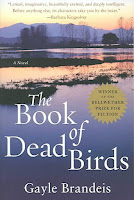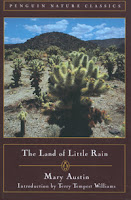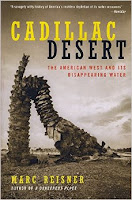~Edward Abbey (1990), Desert Solitaire, p. 194
In Southern California, we are surrounded by deserts. Specifically, the Colorado and Mohave Deserts, within which rests Mojave National Preserve, Joshua Tree National Park, the Salton Sea, and Anza-Borrego Desert State Park. These unique ecosystems, and long stretches of sky, have influenced and shaped the words of many writers.
For a broad view of literature of "The West", which would involve in some cases, deserts, A Literary History of the American West, located in the Reference Collection in Armacost Library is a useful volume to introduce oneself to the history and development of literature on this side of the continent. The book is sponsored by the Western Literature Association, and begins with the oral traditions of Native Americans and early travel narratives, followed by the bulk of the book, which covers authors in different areas of the West (including Southwest, Midwest, Rocky Mountains, etc.).
Edward Abbey (quoted above) is an essential author to read if you are fascinated with the desert landscape. His most well known work, Desert Solitaire: A Season in the Wilderness, documents his time spent as a park ranger at Arches National Monument, in which he reflects on his love of nature, and warns of the continuing desecration of our wild lands. This theme of desecration is continued in his novel, The Monkey Wrench Gang, which follows a group of ecological anarchists intent on demolishing tractors, trains, and bridges to protect the environment. Good News is one of his novels which tends to fly under the radar. It may be best described as a desert dystopia, which warns readers of the consuming march of civilization.
After you've explored Edward Abbey a bit, you may be ready to move on to the following books, which explore our local desert landscapes:
Fiction
Nonfiction








No comments :
Post a Comment